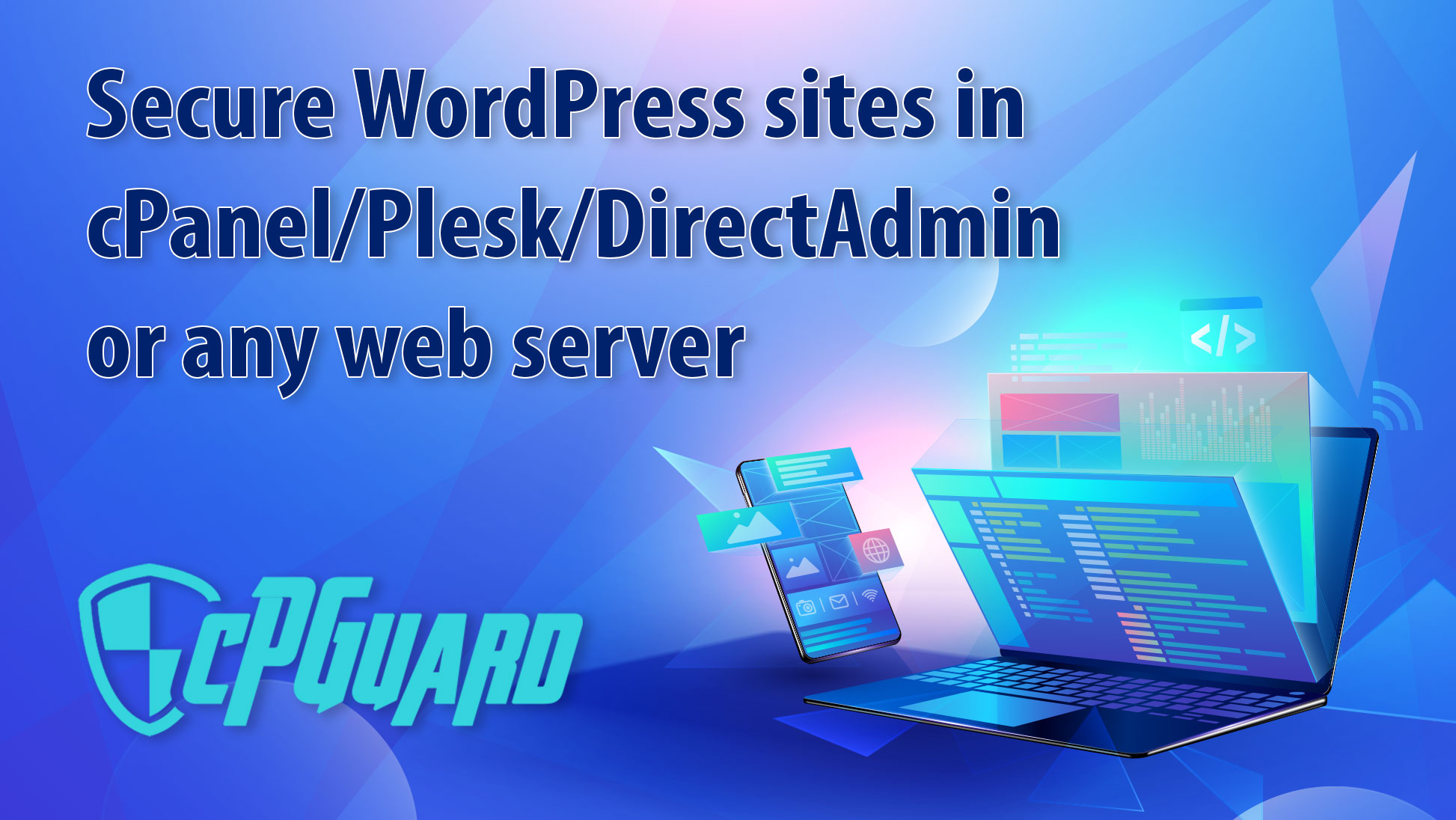WordPress is a well-known Content Management System ( CMS ) that is powering millions of websites around the world. Along with its popularity to build and manage websites, it is also the hot target of various types of attacks. A WordPress website hosted on a server will face attacks from time to time and it is essential to set up a secure environment for the website to avoid a security compromise.
What are the major threats to a WordPress website?
Following are some of the major threats/attacks a WordPress website can face generally. The type of attack is not just limited to these but can be more in number in certain cases.
- Brute force attacks
- Attacks to scan WordPress core vulnerabilities and attempts to exploit them
- SQL Injection Attacks
- Attacks to exploit known plugin and theme vulnerabilities
- Malware uploads
- etc
Again, the attack types are not just limited to the above and you may experience more type of attacks based on scenarios ( other common web attacks like DDoS is excluded in this article ).
How to secure WordPress sites from these types of attacks?
Due to the popularity of WordPress and the increased number of security incidents, there are so many options provided for website owners to secure their websites. These include
- Keep the WordPress core, plugins, and themes up to date
- Install a security plugin on the website
- Take general WordPress site hardening measures
- Enable proper website integrity checks and monitoring
- etc
Each of the above options is expensive in terms of the paid plugins/themes that you choose and the man-hours to set up the site. Also, this is possible only when you have complete control over the WordPress websites on your server.
What are the challenges a host can face on a shared server with multiple WordPress sites?
On a shared server, there is a high probability to have a good percentage of WordPress websites owned by multiple clients. Since the websites are created and managed by different people, the standards that are taken to ensure website security must be different. The installed WordPress version may be old, but installed plugins and themes can be different…in many cases, the sites may contain outdated/unused components with vulnerabilities. In some cases, the website may leave without any security settings and such sites can be a big threat for other websites on the server as well if there is no account isolation enabled.
How cPGuard can help to secure WordPress websites?
cPGuard as a web security suite can help the hosting providers to enforce security to all websites on the server with minimal or no manual effort. Once you install and configure cPGuard on your server, it can detect all websites and enable security for them. The beauty of cPGuard is the minimal effort and the expense to secure websites owned by multiple clients and with multiple components with different versions. Give below are some of the major modules that can protect WordPress sites on your web hosting server.
- Powerful scanner engine:- The cPGuard scanner engine can do both automated, scheduled ( daily/weekly ), and on-demand scans against the website files. This ensures that your files are constantly monitored for malware
- Infection cleanup:- If the scanner engine detects viruses on your WordPress site, the cPGuard cleanup function can clean them up. We also restore the infected WordPress core files from the original copy and thus ensure the website integrity
- WordPress Core Checksum match:- This will check the core checksum of each website and restore the core files from the original source if there is a mismatch. This can remove the hidden malware in core files
- Web Application Firewall:- The cPGuard WAF powered by Malware Expert Commercial ModSec rules is very powerful to stop most generic and specific web attacks. The WAF has explicit rules for WordPress security and keeps updated for the latest vulnerabilities reported
- Captcha protection:- This is the unique method that we have to stop brute-force attacks against websites on your server. This can largely help to stop bots and thus reduce server load.
- Automated notifications to the customers:- cPGuard allows you to send automated email notifications to your customers about the outdated WordPress, plugins, themes, and other potentially vulnerable files they have on their websites. This will make the customer aware of the possible vulnerabilities contained in their websites and can patch them proactively. This will increase total server security as well. You also have the option to customize this email notification content to brand it
The additional protection to your websites is not just limited to the above but the other modules like IPDB distributed firewall, Process monitoring, CMS threats overview, etc can give additional protection to the websites. Also, the feature-rich App Portal UI can give you an overview of the threats that your server is facing…the App Portal enables centralized management for all your servers as well.
How can you try cPGuard?
The installation and configuration are pretty straightforward. You have the option to test cPGuard for 30 days without any cost…you can order the 30 days TRIAL from our cart. After the trial you can purchase a paid license to continue using cPGuard and cPGuard is the cost-effective solution to protect your websites and it can reduce your license costs by up to 70%.

